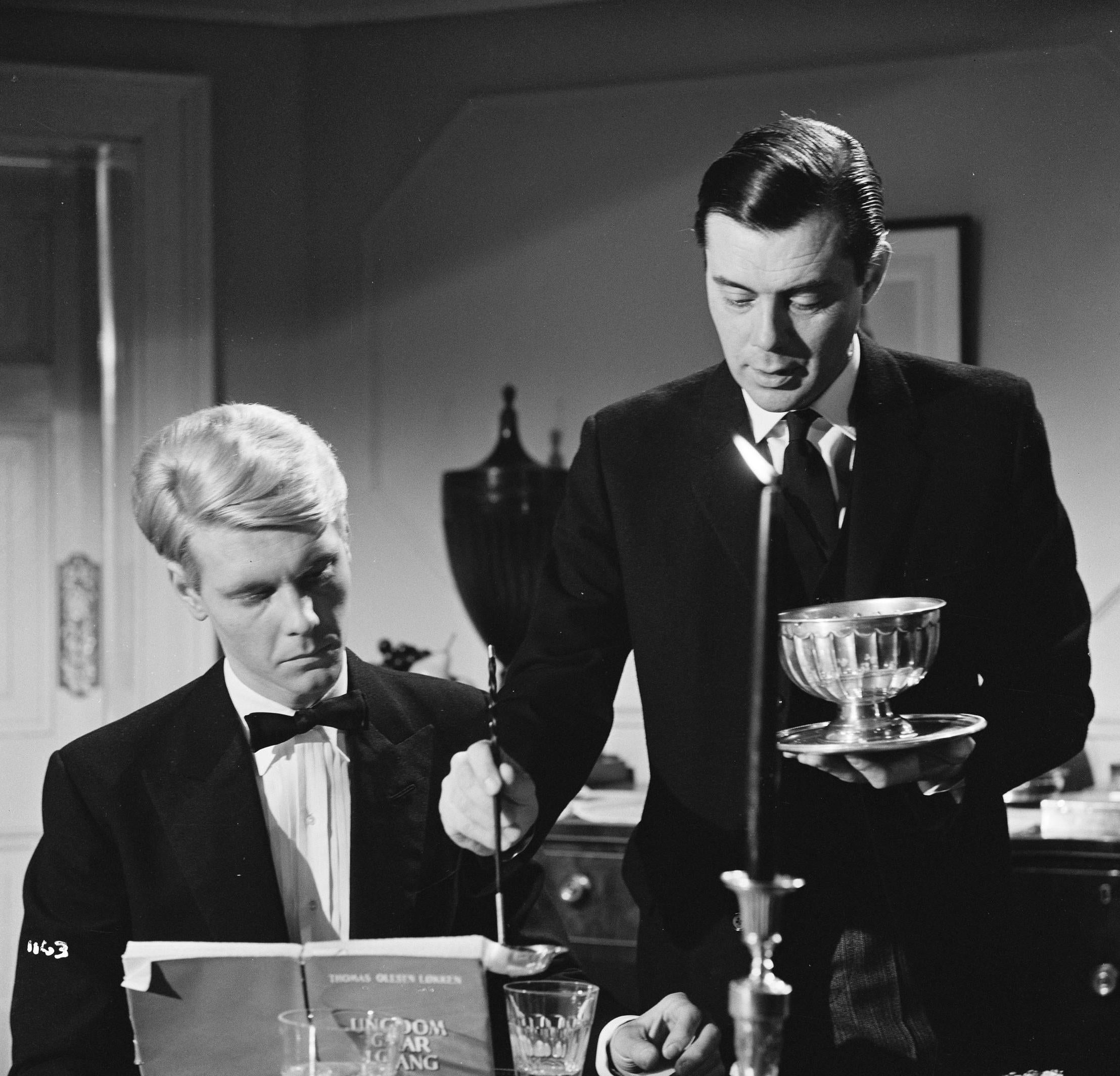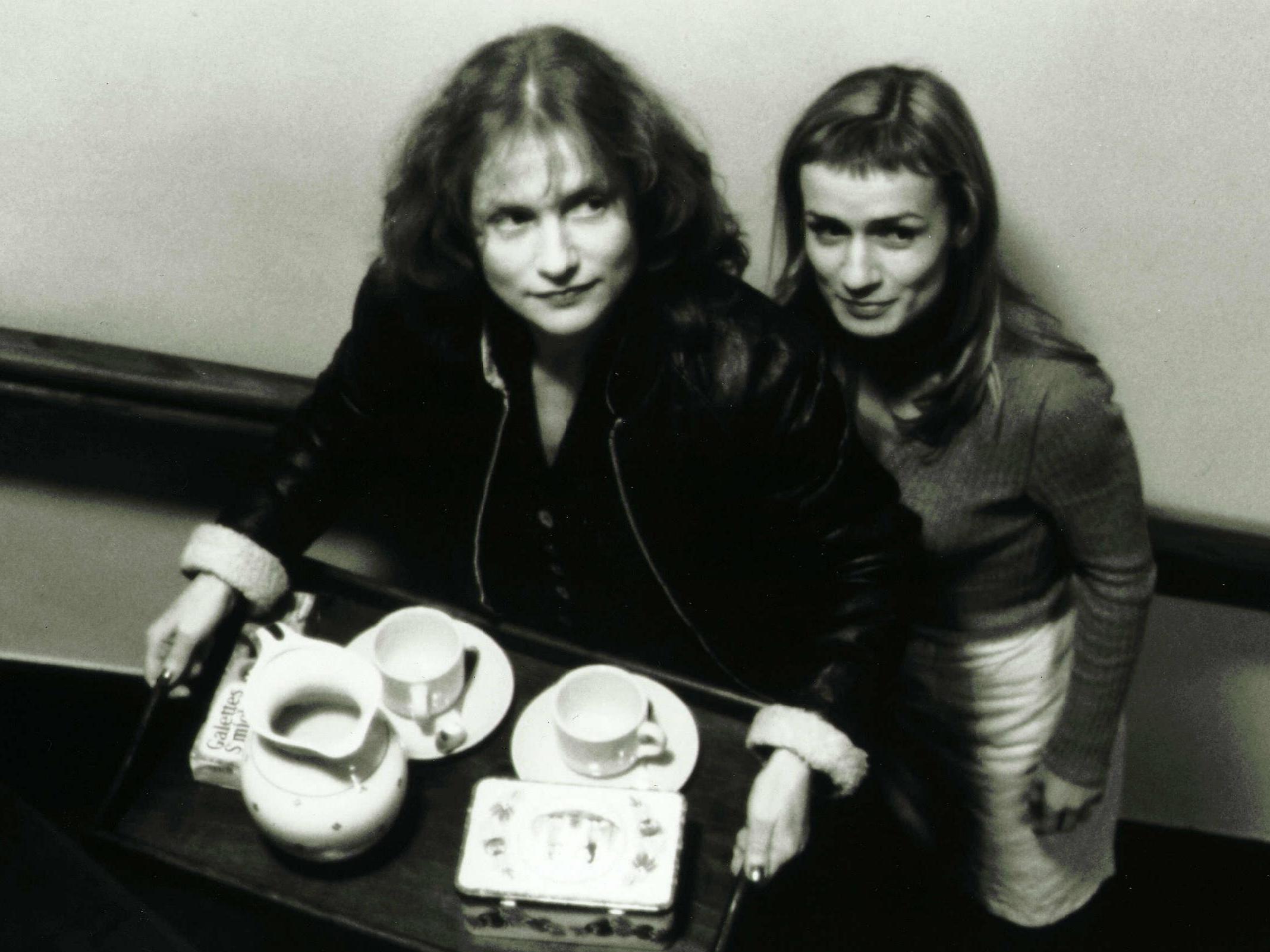How Oscar-nominated film Parasite shows that the master-servant relationship is very much alive
Bong Joon-ho’s film, which picked up six Oscar nominations this week, follows a long tradition of films looking at the fraught and often deadly relationship between employers and their staff, says Geoffrey Macnab, but it is far removed from the cosy harmony suggested in ‘Downton Abbey’

Smell plays a crucial part in South Korean director Bong Joon-ho’s satirical horror comedy Parasite, which this week picked up six Oscar nominations having already won a Golden Globe, the Palme d’Or in Cannes and also having made more than $130m (£100m) at the box office globally.
In the film, the wealthy Park family like to see themselves as enlightened employers. They pay generously, treat the servants as if they are part of the family and even allow them to house-sit when they are away camping – but they can’t hide their dismay at their staff’s cleanliness. To put it bluntly, the problem about the housekeepers and chauffeurs is that they smell. When they come too close, Park Dong-ik and his wife Park Yeon-gyo hold their noses. It may be the damp conditions in which the hired help live in their squalid, cockroach-infested basement flat. It may be that they don’t wash often enough. It may be simply because they’re poor. Whatever the case, the Parks are always careful to open the car windows and air the house once the staff have gone home.
Parasite’s view of master-servant relationships is the antithesis to that found in nostalgic British costume dramas in the Downton Abbey vein. It is set in a modernist house in contemporary South Korea, not a country pile in Edwardian-era England. Bong depicts a world in which money matters more than class. The members of the impoverished Kim family (who pretend they are not related in order to find different jobs in the Park household) don’t look or sound much different to their employers. There is just a whiff of poverty about them.

Local nuances in the film may be lost on western audiences but its trenchant observations about income inequality and how it affects attitudes, behaviour (and personal hygiene too) are universal. Behind their mask of deference, the maids, drivers and tutors in Bong’s film soon develop a bitter loathing of their bosses, whom they try to fleece at every opportunity.
Parasite fits into a long tradition of films in which the servants’ rage and resentment become ever more apparent. It has several overlaps with Joseph Losey’s The Servant (1963), celebrated for Dirk Bogarde’s unctuous and supremely creepy performance as Barrett, the “gentleman’s gentleman” who gradually gets the better of his upper class boss Tony (James Fox). As in Parasite, the toffs around Tony seem repelled by the body odour of the staff. “Do you use a deodorant?” Tony’s girlfriend Susan (Wendy Craig) sneers at Barrett when he comes too close to her to light her cigarette. She is contemptuous of the way he pours wine and of his fussy attitude towards etiquette but, most of all, he makes her recoil physically. In one of the film’s queasiest moments, that disgust turns to attraction.
Barrett is far more subversive than he appears. A northerner with a sadistic streak, he is not so much looking to serve Tony as to usurp his louche and effete boss’s position – to take over his room, his bed and to drink his brandy. Barrett uses his “sister” (in fact his girlfriend and co-conspirator) Vera (Sarah Miles) to seduce Tony in order to disrupt the status quo yet further. At times, it looks as if he is going to seduce Tony himself. Like the tutor in Parasite who hopes to marry the bosses’ daughter, he is trying to inveigle his way into the most intimate parts of his employer’s life.
When Robert Altman made his country house drama Gosford Park (2001), he deliberately set it in the 1930s because that was the time when the upstairs/downstairs style of living that the film portrayed was ending. The era in which working class women often only had two career choices (“If they weren’t housemaids, they’d probably have to be prostitutes,” Altman put it) was almost over. He wanted to capture the system as it was coming apart.
Tellingly, when Gosford Park’s screenwriter Julian Fellowes went on to create Downton Abbey, he set it in an earlier period, when the system was still intact and the cracks hadn’t started to show.
In post-war Britain, old-style country house living had begun to seem absurd and perverse. The Servant (which was Harold Pinter’s first screenplay) is set in the early 1960s. That makes it all the odder that a young man like Tony, who drives a sports car, loves jazz and goes to swinging nightclubs, should employ a manservant. Barrett, though, is no Jeeves. Rather than solve Tony’s day-to-day problems, he looks for ways to multiply them.
Barrett wears a butler’s uniform. No such formality applies in Parasite. Nonetheless, we’re always aware of the social and economic gulf between the masters and their servants.

One of the fascinations for audiences of these films is their ambiguity. The employers will generally be shown in a relatively sympathetic light, even as they unwittingly humiliate their employees. The employees may behave very badly but won’t forfeit our sympathies. “They’re rich but still nice,” the opportunistic father (Song Kang-ho) in Parasite, employed as a driver, says of the Park family soon after starting to work for them. “They’re nice because they’re rich,” his wife immediately corrects him, summing up perfectly the bad faith and misunderstanding on both sides.
The Parks are blinded by their own wealth. At times, in spite of the unpleasant odour, they don’t even notice their servants. Bong extracts maximum comic mileage from the farcical scenes in which the Kims try to hide in plain sight. While the Park family blithely go about their lives, the Kims are battling for survival. They can’t afford to be nice. Bong shows them behaving in cunning, cruel and ruthless fashion towards others at the bottom of society, who are in exactly the same economic situation as they are. There is no camaraderie across class lines.
Bong’s zestful, knockabout storytelling style may distract us but Parasite doesn’t portray contemporary South Korea in a remotely positive light. You can understand why North Korean propagandists have used it to trump the superiority of their own society over that of their neighbours.
At least, the film isn’t as dark as Claude Chabrol’s La Cérémonie (1995), the great French director’s adaptation of Ruth Rendell’s crime novel, A Judgment in Stone. In the film, an illiterate maid Sophie (Sandrine Bonnaire) is egged on by her postmistress friend (Isabelle Huppert) and, together, they massacre the bourgeois family, the Lelievres, employing Sophie. They use the family’s own shotguns to do so. Chabrol lays on the irony very thickly. The murder scene is presented as if it’s a jolly jape; a piece of play-acting that gets out of hand.

The two women load the shotguns as their victims sit in another part of the house, watching opera on TV. After they’ve shot one member of the family, the father, in the kitchen, they have a quick cup of coffee before moving into the sacred realm of the drawing room to murder the others. They show no emotion whatsoever. With the corpses lying dead around her, Huppert’s character calmly turns off the television. Their detachment makes the scene all the more baffling and horrifying. Sophie has simply become so fed up with serving the family, who’ve treated her strictly but fairly, that she rebels and massacres them.
The desire to murder, or at least to dominate, the boss is also there in Christopher Miles’s film version of Jean Genet’s The Maids (1975), a heady, sadomasochistic drama starring Glenda Jackson and Susannah York as the maids who “live to serve” and “serve to destroy”. They’re forever hatching plans to dispatch their detested “Madame” (Vivien Merchant). “It’s not enough to kill her,” they mutter but their schemes rebound on themselves.
Upstairs/downstairs movies are generally associated with the past, with the world of country houses, dowager duchesses and hunt balls. Parasite shows that the divisions and inequalities that always lurk in the background in such movies remain with us today. Even if the era in which becoming a servant was the only viable career choice is long since over, on-screen stories about maids and butlers, masters and mistresses and all the tensions simmering between them are as current now as ever. In the late 1920s, celebrated writer JB Priestley proclaimed that domestic service was becoming “as obsolete as the horse”. Judging by Bong’s Korean blockbuster, he was speaking very prematurely indeed.
‘Parasite’ is released on 7 February
Join our commenting forum
Join thought-provoking conversations, follow other Independent readers and see their replies
0Comments